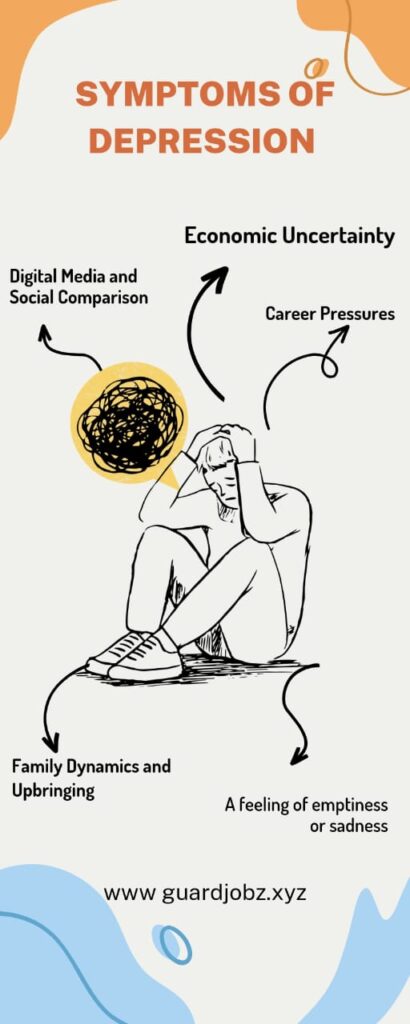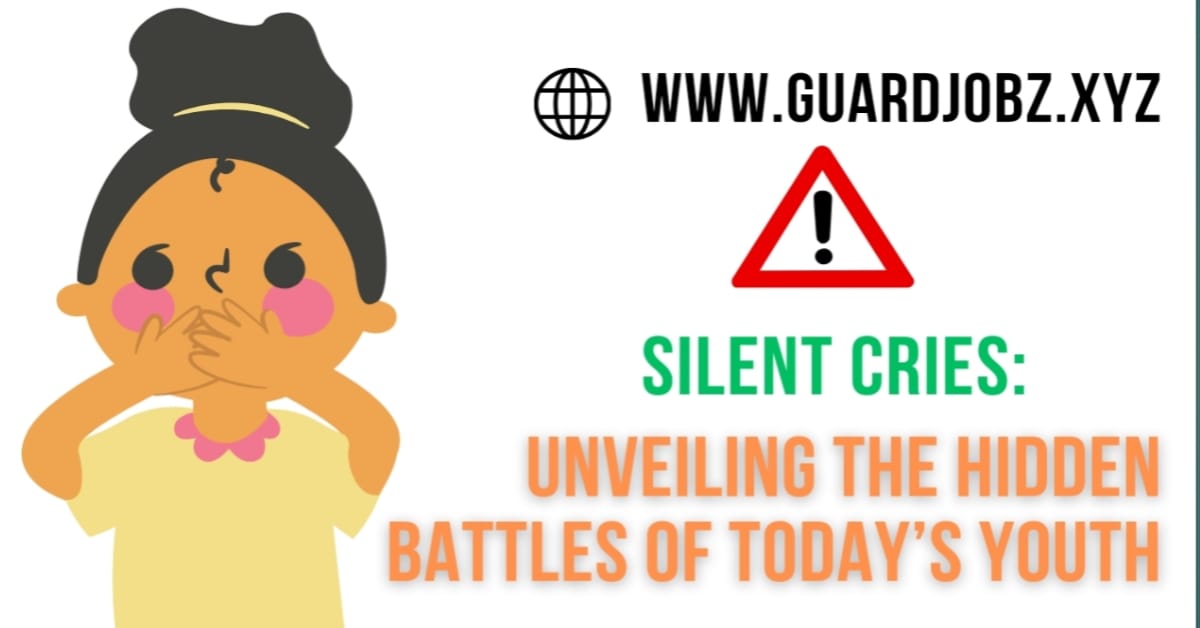In this ever-faster and highly networked world, depression amongst today’s youth has acquired a character of an invisible epidemic. Social pressures, strong academic demands, expectations that emerge from society, and comprehensive penetration of digital media have blended into a hotbed that brings forth mental health malaise. While the awareness of mental health has grown over the past few years, depression remains one of those conditions that is more often than not misunderstood and stigmatized. This article looks at the causes, impact, and possible solutions to this condition, with the intent of fostering understanding and encouraging collective action.
Understanding Depression in Young People
It’s more than feeling sad or having a bad day. Depression is a serious mental health disorder that affects the way one thinks, feels, and conducts himself or herself. For many young people, depression can manifest as an overwhelming sense of hopelessness, a loss of interest in activities that were once enjoyed, difficulty concentrating, changes in appetite or sleep, and physical symptoms like fatigue and headaches.
While it may affect anyone, the depressing condition seems to have been affecting the younger generation at a disproportionately higher rate. According to the World Health Organization, depression is among the major causes of illness and disability among adolescents worldwide. Depressing indeed, the prevalence of depression and anxiety among youth has taken a leap in recent years.
Causes of Depression in the Younger Generation
Depression is linked to biological, psychological, and social factors that are involved in its etiology among young people.
1.Digital Media and Social Comparison
Social media has deeply changed the way youngsters interact with the world and their peers. While most social media platforms, including Instagram, TikTok, and Snapchat, provide ample opportunity for reaching out and connecting, they equally contribute to unhealthy comparisons and an insatiable desire for validation. Youngsters often feel like they are living incomplete lives since they see only the curated highlights of others’ lives, which fosters loneliness and low self-esteem.

2.Academic and Career Pressures
The pressure to excel academically and secure a stable future is a significant stressor for young people. The competitive nature of education systems worldwide leaves little room for failure or exploration, often leading to burnout. For many, the fear of not meeting expectations—whether self-imposed or external—triggers feelings of anxiety and despair.
3.Economic Uncertainty
Unlike the previous generations, today’s youth face an unpredictable economic environment. Increased costs of education, housing, and living, coupled with stagnant wages, have driven many into despair about their future. This financial insecurity is accentuating feelings of inadequacy and helplessness.
4.Family Dynamics and Upbringing
Family relationship The mental condition of a youngster is to a great extent affected by his family. Dysfunctional family dynamics, trauma, and the lack of emotional support can make an individual vulnerable to depression. Societal changes have also led to more single-parent families and two-income families that sometimes deny quality time to children with their parents.
5.Global Crises
From climate change to political instability, youth today are growing up in a world riddled with uncertainty. The constant stream of bad news can breed a sense of hopelessness and a feeling of powerlessness.
The Consequences of Depression
When depression is left untreated, it may result in disastrous consequences on a young person’s life.
1.Impact on Education and Career
Depression often disrupts the student’s ability to focus, learn, and succeed academically. The result is often derailed educational goals and limited career options, which in turn set up a self-perpetuating cycle of frustration and despair.
2.Strained Relationships
Depression can lead to withdrawal from family and friends, creating isolation that exacerbates the condition. Young people struggling with depression may find it difficult to maintain healthy relationships, which further impacts their support system.
3.Physical Health Issues
The mind and body are intricately connected. Chronic depression can lead to physical ailments such as cardiovascular problems, weakened immune systems, and sleep disorders.
4.Increased Substance Abuse
Many of them resort to alcohol or drugs to cope with their feelings and end up getting dependent, hence leading to further mental and physical health problems.
5.Suicide
It is among the leading causes of suicide among the youths due to depression. Suicide among people aged between 15 and 29 years is the second major cause of death worldwide. This calls for timely intervention.
Solutions against Depression among Young People
As earlier illustrated, dealing with depression involves approaches that include an individual, a family, as well as community and state levels.
1.Encouragement of Open Conversations
Stigma around mental health needs to be torn down. Schools, colleges, and workplaces are places where the young minds need to be given comfort about discussion of struggles. Awareness campaigns, workshops on mental health, and peer support groups go a long way in normalizing conversations.
2.Reforming Education Systems
In education systems, mental fitness needs to be accorded its due place alongside academic excellence. The inclusion of stress management programs, mindfulness training, and flexible curricula would go a long way in soothing the pressure of academic competition.
3.Healthy Digital Habits
Family and friends can be a great support for a young person with depression in fighting the illness. Parents must make it easy for the children to open up and discuss issues with them and, if necessary, take the child for professional help.
4.Increasing Access to Professional Help
This means that governments and health systems must put mental health first through increasing spending in counseling services to ensure therapies are more accessible and less expensive. Online therapy platforms have emerged as resourceful aids to provide anonymity and comfort to young people looking for help.
5.Encouraging Supportive Environments
Family and friends can be a great support for a young person with depression in fighting the illness. Parents must make it easy for the children to open up and discuss issues with them and, if necessary, take the child for professional help.
6.Resilience and Coping Mechanisms
Resilience training can equip the young to face challenges without being cowed down by them. Such effective practices may include journaling, meditation, regular exercise, and the pursuit of hobbies.
7.Addressing the Causes
These include identifying and addressing some of the broader societal issues, like economic disparities, climate change, and political instability, to ensure a healthier environment for future generations. It is now high time that the young generation be given a better avenue to get involved in actively helping to shape their communities and air their views on change.
The Role of Society
Depression among youth is not an individual problem but a societal problem, which needs collective efforts. The governments have to make mental health a policy priority; the communities have to be integrated and supportive of their children, while employers have a role in providing workplace cultures that give importance to well-being over productivity.
A Brighter Tomorrow
The challenges faced by today’s younger generation are unparalleled, but they are not insurmountable. By understanding the complexities of depression and working together to address its root causes, we can create a world where young people feel valued, supported, and empowered to lead fulfilling lives.
Depression feeds on silence, while hope is lifted by understanding. It will be up to us to make sure no young person has to suffer in isolation, with the support and resources necessary to find their path toward healing.
It means focusing attention on mental health, encouraging candid conversations, and building a kinder society in which young people are empowered to fight depression and realize their full potential.
